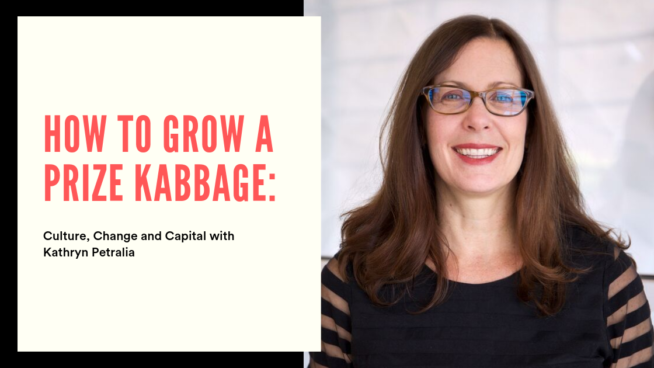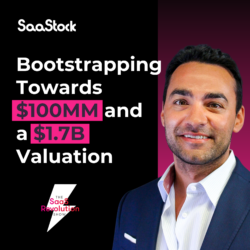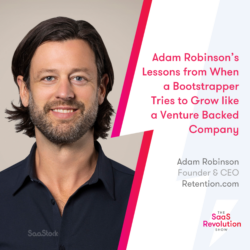Although impeccably polite, you get the impression that Kathryn Petralia might be a little tired of the focus placed on her unconventional path to success at the helm of FinTech giant, Kabbage.
The company, which provides AI-powered access to capital, directly to SMBs, has ranked on the Inc. 5000 list as one of America’s fasting-growing private companies for three consecutive years.
Forget rags to riches, Petralia’s is a story of books to banking. A female English Literature major, living outside of the Bay Area, Petralia defies most conventions when it comes to the standard FinTech founder stereotype.
If she was a little exasperated at the attention this anomalous origin story seems to attract, it would be entirely understandable. Her early resumé might buck trends, but much of the Kabbage story up until this point has been relatively remarkable; a masterclass in sustained growth, staggeringly successful fundraising and international expansion.
“I just took advantage of the opportunity. And I kept on doing that.”
Although an Arts student, Petralia’s gateway to the world of tech was one that many will find relatable; the thrill of a computer (in her case, the TRS-80) purchased by her parents in the late 1970s. The connection was instant and instinctive. “I’d never written a line of code, but I’ve always been sort of comfortable with technology,” muses Petralia.
This natural affinity meant that she kept career options open. In the end, she decided against becoming an English professor and instead took a role with a technology startup. “It was the early 90s, and this position first exposed me to the internet as a way of building a business,” explains Petralia, “I just took advantage of the opportunity. And I kept on doing that.”
Recognizing an opportunity and acting decisively upon it. This formula plays out on repeat throughout Petralia’s career, to great effect. Kabbage, which she co-founded alongside Rob Frohwein and Marc Gorlin back in 2009, may have achieved that mythical unicorn valuation status, but theirs is a story of calculated, solid growth. There’s no miracle formula to the success that Kabbage has seen. It’s a case of good, old fashioned graft – a series of well-informed strategic plays that have incrementally edged the enterprise into its industry-leading position.
“It’s been steady progress,” agrees Petralia. “It’s not like you wake up one morning and all of a sudden, you’re running a billion-dollar business. It’s a process, over a long time, with a myriad of steps along the way.”
Organically Grown Kabbage
With offices in Atlanta, San Francisco, Denver, New York and Bangalore (Vancouver is rumored to be the next in line for a helping of Kabbage,) the workforce is becoming ever more distributed. It’s at this point that many companies start to see fault lines appearing internally. There’s a risk of company culture becoming at best siloed, and at worst, somewhat tribal.
The instinct of many founders is to fight this dilution of the company ethos, doubling down on the promotion and demonstration of core values. Petralia, however, has kept a lighter hand on the reigns.
“Culture has always been important to us, in as much as we want to work in a place where we have a good time and can be ourselves,” explains Petralia. “But I’ve had so many entrepreneurs say to me, ‘When did you define your culture and lay out your values?’ We didn’t do that out of the gate. At some point, someone said, ‘we should probably have some core values’ and we said “Oh. Okay… We’ll totally do that?’ We just codified what already existed. We didn’t make stuff up that was aspirational.”
This relaxed, authentic attitude towards values appears to have had the desired effect. Consistently highly ranked across all the major employment comparison platforms, Kabbage receives rave reviews on Glassdoor and regularly attains ‘Great Place To Work’ certification, with a 97% staff approval rating for 2018/19.
Talent Spotting
The word that consistently appears throughout these employee reviews? People. Kabbage is doing something right when it comes to talent acquisition. Has hiring played a significant factor in dictating their international expansion?
“A lot of it has been opportunistic,” agrees Petralia. “In San Francisco, we wanted to open up offices that would provide us with access to talent, which wasn’t accessible in Atlanta. And the same went for New York. Bangalore is probably the best example of that strategy playing out. We were looking for talent who had solid analytics expertise, and that’s just where those people were. So we went there. It wasn’t because we wanted to save money, or for any other purpose.” She laughs, “In fact, we probably didn’t save any money, because we spend an incredible amount of time traveling back and forth.”
It’s refreshing to see a company flexible and magnanimous enough to go to the talent, rather than demanding mass relocation to single tech hub HQ. It’s evident that Petralia has a deep respect for her ever-expanding team. “It’s hard not knowing everybody’s names nowadays,” she admits, “It’s almost embarrassing, even though I know there’s no way I can know 600 people’s names.” By taking Kabbage to the areas that they know the right people are waiting for them, have they sidestepped some of the hiring challenges that scaling companies often face?
“I wouldn’t say it’s been a blocker” reflects Petralia. “We do spend a lot of time interviewing, hiring, and recruiting people, so to the extent that it’s a distraction from running the business, sure, it’s a time suck. But I think that’s something that every business faces.”
What represents a bigger challenge to growth? “We’re in the money business,” she smiles, “So it’s been access to capital, for sure. Both on the equity and the debt side.”
Data & Differentiation
So far, so saintly. Kabbage have nailed an authentic culture and devoted workforce, whilst appearing to dodge many of the typical growing pains faced by scaling businesses. This is undoubtedly a contributing factor to their success but doesn’t paint the whole picture.
Kabbage have always been known as a company who go after the gaps. Reacting swiftly to the chance to get into a new space, or serve a neglected audience has been something of a calling card for the business. Again, we see echoes of Petralia’s early modus operandi – “I just took advantage of the opportunity. And I kept on doing that.”
The FinTech space is crowded and cutthroat; how have Kabbage differentiated over the last 11 years? “From our perspective,” explains Petralia, “it’s all about technology and access to data. We provide our customers with a product that they can use anytime they want – not just one-time access to capital.”
True to form, however, Kabbage isn’t content to rest on its laurels. Petralia continues, “That story’s really changing right now because what we’re doing is providing a real-time cash flow management system for our customers. It allows them to take their minds off of cash flow so that they can focus on the things that they care about. Their craft. Their trade. Their families. Whatever those things are, where they really want to be investing their time.”
Kabbage’s history is indeed peppered with the expansion and evolution of their product. What’s remained constant is the savvy leverage of real-time data. It’s this lifeblood that gave the platform the ability to sidestep reliance on traditional credit models, and which continues to set them apart. Today, evidence of their reverence for the power of data is still demonstrated through their choice of acquisitions and new services.
One such service is the freshly launched Kabbage Index. Pulling real-time data from the 2 million connections it has access to (from more than 200,000 small businesses,) The Index can report the ongoing revenue performance of small businesses across America. This free resource shines a light onto a huge swathe of the U.S. economy, which has never before been available to the public.
Tooling Up
The launch of The Index feels significant. So too does Petralia’s upcoming presence at SaaStock19. Is expansion into the SaaS space imminent?
“We want to talk about the direction we’re heading with the business, especially with regards to providing cash flow management tools for our customers,” explains Petralia.
“We’re looking at how can we provide SaaS products to customers – because what we’re building now really is more of a SaaS product,” she reveals. “How can people get access to small businesses? Why is it important, and what could that do for SaaS-based businesses more broadly?”
The freshly sealed acquisition of Radius Intelligence, a small-business customer data platform for B2B revenue teams, announced just days ago, speaks volumes about this last point. It’s propelling Kabbage’s ability and leadership in delivering data-driven cash flow solutions for small businesses.
One thing is certain: Kabbage is on a mission to keep differentiating itself from other SMB-focused FinTech companies. In that, the future is bright.

What’s Next For Kabbage?
If you’d like to be a fly on the wall as Petralia delves deeper into what this SaaS-focused future roadmap might look like for Kabbage, for twenty minutes this October, you can be.
While we’re certain much remains to be revealed, what currently seems inevitable is the company’s intention to keep to its tried and tested playbook when it comes to diversification and expansion. Does Petralia have any concerns regarding future bumps in the road?
“People remain the hardest part of any business I think,” she reflects. “We’re all people, we all have needs and desires and good days and bad days, impacting the ways we behave. Finding and keeping the right people for the right function is something you need to be sure you’re absolutely on top of. Especially if you’re in a high growth company because the business needs change all the time too.”
With Kabbage’s star continuing to ascend, people and performance will remain key to Petralia. “I think that’s still the area where I spend most of my time,” she speculates. “Communication is so critical. I want to make sure that everyone understands what we’re trying to achieve.”
We’re very much looking forward to the SaaStock19 fireside chat that will help to illuminate exactly what these future ambitions are shaping up to be for Kabbage, and very much hope you’ll be able to join us there. In the meantime, we’ll be adopting Petralia’s approach to business as our new SaaS-friendly mantra.
Take advantage of the opportunity.
Keep on doing that.
The opportunity you should take advantage of now is to see Kathryn Petralia and over 160 other mazing speakers spread over 5 stages.







